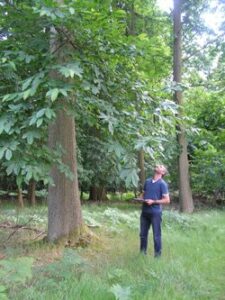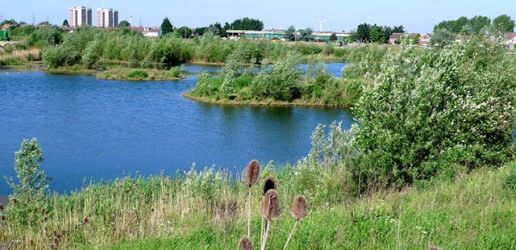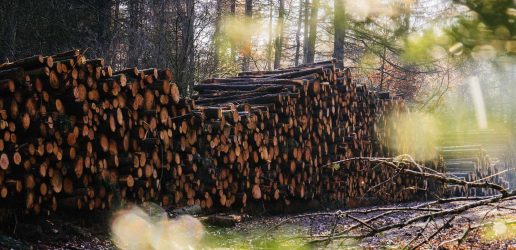
An award-winning partnership which has identified 1,046 cases of tree pest and disease across the UK is set to continue.
Observatree launched in spring 2015 aiming to train volunteers to help protect the UK’s trees, woods and forests from harmful pests and diseases, both existing and new.
So far, 235 volunteers have been trained by the collaboration led by Forest Research, supported by the Woodland Trust, Forestry Commission England, Defra, Fera Science Ltd, the Animal & Plant Health Agency, the National Trust, Natural Resources Wales and Forestry Commission Scotland.
Over 3,000 sites have been surveyed by the volunteers in a little over two years with over 600 ‘priority’1 pest or disease cases being confirmed. As part of this, 11 of the 21 priority pests and diseases already in the UK have been recorded.
A small group of the volunteers also verify cases of tree disease recorded via the Forestry Commission’s Tree Alert², an online reporting tool which allows anyone to report trees showing signs of ill-health.
The project will now continue with funding of £231,000 per year, and additional support, from a wide range of conservation and government bodies.
Chief Plant Health Officer, Professor Nicola Spence, said: “Protecting our trees from the threat of pests and diseases is vitally important to us all, and this project is an excellent example of volunteers, NGOs and government working together to achieve more than we could alone.
Dr Joan Webber, Principal Pathologist at Forest Research, added: “Observatree’s network of trained volunteers gives Forest Research’s scientists many more eyes on the lookout for new threats to tree health. They provide quality reports that let our experts focus on the most urgent cases.”
By focusing on pests and diseases which are of the highest concern, the volunteers support Government agencies such as Forest Research and the Forestry Commission, enabling them to take appropriate action at locations of significance identified by the volunteers and tree health professionals, as quickly as possible.
Two volunteer roles were created: the Tree Health Surveyors help spot the presence of specific pests and diseases on common tree species, and the Tree Health Triage Verifiers collect additional information for tree disease records submitted through Tree Alert by the public and Tree Health Surveyors.
A volunteer in Hertfordshire successfully identified only the second case of Oriental Chestnut Gall Wasp in the country and another in Wales recorded over 20 new cases of ash dieback. The project has also been recognised for its work by Horticulture Week and Defra’s own ‘Data Pioneer’ award.
Recent News
View All news
New land regeneration resources for creating green spaces on previously used land now available
The new resources bring together the latest learnings on land regeneration and climate change, and optimal soil thickness for planting on previously used land.

New national survey launched to strengthen plant pest and disease detection across UK horticulture
UK horticulture and landscaping businesses invited to take part in survey to strengthen non-native plant pest and disease detection and reporting.
Forestry and timber businesses across the UK are being asked to take part in an annual survey programme to collect data about the UK timber industry.

New land regeneration resources for creating green spaces on previously used land now available
The new resources bring together the latest learnings on land regeneration and climate change, and optimal soil thickness for planting on previously used land.

New national survey launched to strengthen plant pest and disease detection across UK horticulture
UK horticulture and landscaping businesses invited to take part in survey to strengthen non-native plant pest and disease detection and reporting.
Forestry and timber businesses across the UK are being asked to take part in an annual survey programme to collect data about the UK timber industry.

